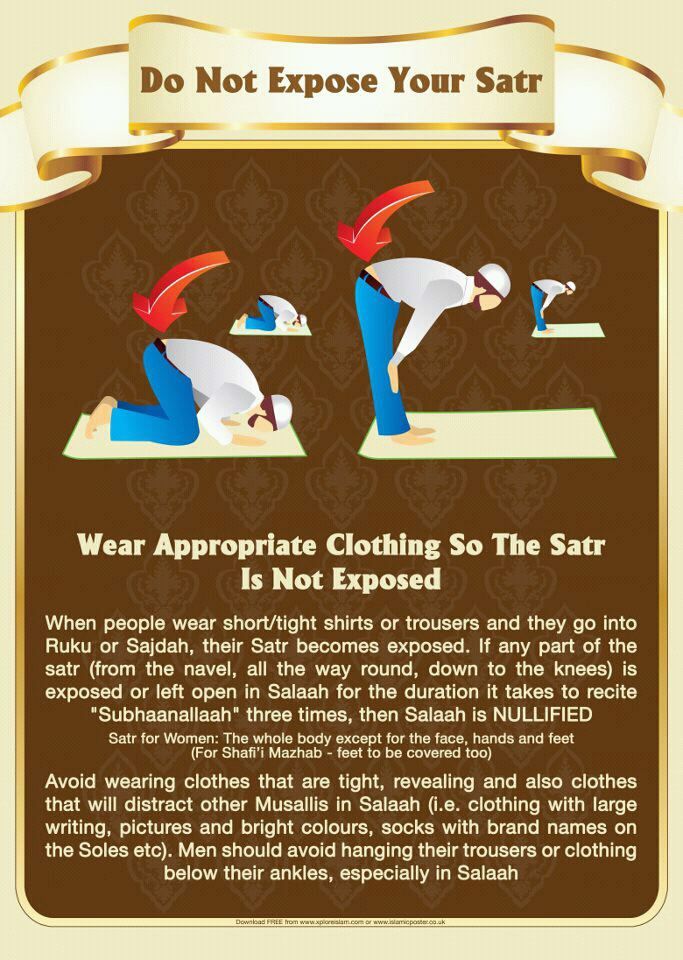Rulings Of Sacrifice - UDHIYAH -1st
Allah says, in Quran
This day, I have perfected your religion for you,
completed My Favour upon you,
and have chosen for you Islâm as your religion.
(Al-Maeda-3)
Bismillah Walhamdulillah Was Salaatu Was Salaam 'ala Rasulillah
As-Salaam Alaikum Wa-Rahmatullahi Wa-Barakatuhu
{In the name of Allah, praise be to Allah, and may His peace and blessings be upon His messenger
{ Peace be upon you, and the mercy of Allaah and His blessings}

book by Muhammad Salih Al-Munajjid
Udhiyah
is one of the great rituals of Islam, in which we remember the Unity of
Allaah, His blessings upon us and the obedience of our father Ibraaheem
to his Lord, and in this act of udhiyah there is much goodness and
blessing. So the Muslim must pay attention to its great importance. The
following is a brief look at this important ritual. Udhiyah
refers to the animal (camel, cattle or sheep) that is
sacrificed as an act of worship to Allaah, in the country in which the
person offering the sacrifice lives, during the period from after the
Eid prayer on the Day of Nahr (Eid al-Adhaa) until the last of the Days of Tashreeq (the 13th day of Dhu'l-Hijjah), with the intention of offering sacrifice. Allaah says (interpretation of the meaning):
"Therefore turn in prayer to your Lord anf sacrifice (to Him only)."
[al-Kawthar 108:2]
"Therefore turn in prayer to your Lord anf sacrifice (to Him only)."
[al-Kawthar 108:2]
"Say (O Muhammad): `Verily, my prayer, my sacrifice, my living and my
dying are for Allaah, the Lord of the `Aalameen (mankind, jinns and
all that exists)."
dying are for Allaah, the Lord of the `Aalameen (mankind, jinns and
all that exists)."
[al-Anaam 6:162]
"And for every nation We have appointed religious ceremonies, that
they may mention the Name of Allaah over the beast of cattle that He
has given them for food. And your God is One God, so you must submit
to Him Alone (in Islam)"
they may mention the Name of Allaah over the beast of cattle that He
has given them for food. And your God is One God, so you must submit
to Him Alone (in Islam)"
[al-Hajj 22:34]Udhiyyah
is a confirmed Sunnah according to the majority of scholars (some
scholars say that it is waajib or obligatory; this will be discussed in
more detail below).
The
basic principle is that it is required at the appointed time from one
who is alive on behalf of himself and the members of his household, and
he may include in the reward for it whoever he wishes, living or dead.
With
regard to udhiyah on behalf of one who is dead, if the deceased
bequeathed up to one third of his wealth for that purpose, or included
it in his waqf (endowment), then these wishes must be carried out,
otherwise, if a person wishes to offer a sacrifice on behalf of someone
who has died, this is a good deed and is considered to be giving charity
on behalf of the dead. But the Sunnah is for a man to include the
members of his household, living and deed, in his udhiyah, and when he
slaughters it, he should say,
"Allaahumma haadha anni wa an aali bayti (O Allaah, this is on behalf of myself and the members of my household"
He does not have to make a separate sacrifice on behalf of every deceased person.
"Allaahumma haadha anni wa an aali bayti (O Allaah, this is on behalf of myself and the members of my household"
He does not have to make a separate sacrifice on behalf of every deceased person.
The
scholars agreed that sacrificing the animal and giving its meat in
charity is better than giving its value in charity, because the
Messenger (peace and blessings of Allaah be upon him) used to make the
sacrifice, and he did not do anything but that which is best and most
befitting.This is the opinion of Abu Haneefah, al-Shaafai and Ahmad.
Ya Allah !
Surely We Have Heard A Preacher Calling To The Faith,
Saying : Believe in Your Allah, So We Did Believe;
Ya Allah !
Forgive Us Therefore Our Faults,
And Cover Our Evil Deeds And Make Us Die With The Righteous.
Ya Allah !
Grant Us Good in This World And Good in The Hereafter,
And Save Us From The Chastisement Of The Fire.
Ya Allah !
Accept From Us ;
Surely Thou Art The Hearing, The Knowing
Surely We Have Heard A Preacher Calling To The Faith,
Saying : Believe in Your Allah, So We Did Believe;
Ya Allah !
Forgive Us Therefore Our Faults,
And Cover Our Evil Deeds And Make Us Die With The Righteous.
Ya Allah !
Grant Us Good in This World And Good in The Hereafter,
And Save Us From The Chastisement Of The Fire.
Ya Allah !
Accept From Us ;
Surely Thou Art The Hearing, The Knowing
Please Take A Moment To Forgive Me For All Mistakes
And Make Dua For Me If You Have Received Anything Of Benefit
Share This Post With Ur Family & Friends
Guiding One Soul To Knowledge And Faith Is A Momentous Achievement
It Is What Will Earn Us Great Blessings Insha Allah
May Allah Accept This Little Service From Us
Ameen Ya Rabbul Alameen !!!!!!
Rasool Allah Sallalahu Alaihe
Wassalam Na Farmaya :
"Allah Ki Qasam Agar Tere Zariye
Ek Aadmi Ko Hidayat Mil Jaye Toh
Woh Tere Liye Surq Ountoun Se Behtar Hai
Wassalam Na Farmaya :
"Allah Ki Qasam Agar Tere Zariye
Ek Aadmi Ko Hidayat Mil Jaye Toh
Woh Tere Liye Surq Ountoun Se Behtar Hai
Abu Dawood-JILD3 PAGE 322....
--~---
--~---
سُبْحَانَكَ اَللَّهُمَّ وَبِحَمْدِكَ أَشْهَدُ أَنْ لَّاإِلهَ إِلَّا أَنْتَ أَسْتَغْفِرُكَ وَ أَتُوبُ إِلَيْكَ
تو
پاک ہے اے اللہ اور میں تیری حمد کرتا ہوں، میں گواہی دیتا ہوں کہ تیرے
سوا کوئی معبود نہیں میں تجھ سے بخشش چاہتا اور تیری طرف توبہ کرتا ہوں۔
---~---
اَللّٰهُمَّ
إِنِّیْ أَعُوْذُ بِكَ مِنْ عَذَابِ الْقَبْرِ، وَأَعُوْذُ بِكَ مِنْ
عَذَابِ جَھَنَّمَ، وَأَعُوْذُ بِكَ مِنْ فِتْنَةِ الْمَسِيْحِ
الدَّجَّالِ، وَأَعُوْذُ بِكَ مِنْ فِتْنَةِ المَحْيَا وَفِتْنَةِ
الْمَمَاتِ، اَللّٰهُمَّ إِنِّیْ أَعُوْذُبِكَ مِنَ الْمَأْثَمِ
وَالْمَغْرَمِ
اے
اللہ ، میں عذاب قبر سے تیری پناہ چاہتا ہوں اور میں جہنم کے عذاب سے تیری
پناہ چاہتا ہوں اور میں دجال مسیح کے فتنے سے تیری پناہ چاہتا ہوں۔اور میں
زندگی اور موت کی آزمائشوں سے تیری پنا ہ چاہتا ہوں۔اے اللہ ، میں گناہ
اور قرض سے تیری پنا ہ چاہتا ہوں۔
======================
Remember Me In UR Prays
Mrs Rubina Yasmeen
=======================
Jazak Allah Khair








Happy Bakar-E-Eid to All Muslim Brothers and Sisters
3 } The 9th Day Of Zulhijjah
{ Youmul - Arafah }
The 9th day of the month of Zulhijjah is called “Youmul – ‘Arafah”
The 9th day of the month of Zulhijjah is called “Youmul – ‘Arafah”
(The Day of ‘Arafah).
This is the date when the Hujjaj
This is the date when the Hujjaj
(Hajj pilgrims, plural of Hajj)
assemble on the plain of ‘Arafat,
six
miles away from Makkah Al-Mukarramah, where they perform the most
essential part of the prescribed duties of Hajj, namely, the ‘Wuqoof of
‘Arafat (the stay in ‘Arafat).
3 } The Fast Of Youmul - Arafah
3 } The Fast Of Youmul - Arafah
▄▄▄▄▄▄▄▄▄▄▄▄▄▄▄▄▄▄▄▄▄▄▄▄▄▄▄▄
For those not performing Hajj,
it is mustahabb (desirable) to fast on this day according to their own Calendar.
It
sometimes occurs that the date of 9th Zulhijjah falls on different days
in different countries according to the sighting of the Moon.
In such cases, Muslims of each country should observe Youmul – ‘Arafah according to the lunar dates of their own country.
For example, if “Youmul – ‘Arafah” is being observed in Saudi Arabia on Friday,
For example, if “Youmul – ‘Arafah” is being observed in Saudi Arabia on Friday,
and
in Pakistan/India on Saturday, Pakistani / Indian Muslims should treat
Saturday as “Youmul – ‘Arafah” and should fast on that day if they
desire to benefit from the fast of
“Youmul – ‘Arafah”.
The fast of “Youmul – ‘Arafah” has been emphasized by the Holy Prohet Muhammad (Sallallahu Alaihi Wassallam) as a mustahabb (desirable) act.
The fast of “Youmul – ‘Arafah” has been emphasized by the Holy Prohet Muhammad (Sallallahu Alaihi Wassallam) as a mustahabb (desirable) act.
According to a hadith, the fast of this day becomes a cause, hopefully so, of forgiveness for sins committed in one year.
3b) Takbir - Ul - Tashriq :
3b) Takbir - Ul - Tashriq :
▄▄▄▄▄▄▄▄▄▄▄▄▄▄▄▄▄▄▄▄▄▄▄▄▄▄▄▄
As from the Fajr of the 9th Day of Zulhijjah upto the ‘Asr prayer (Namaaz) of the 13th, it is obligatory on each Muslim to recite
the Takbir of Tashriq in the following words:
الله اكبر ,الله اكبرلااله الاالله والله اكبرالله اكبر ولله الحمدAllahu Akbar, Allahu Akbar,
La ilaha illallahu, Wallahu Akbar,
Allahu Akbar wa lilla-hil-hamd.
(There is no god but Allah and Allah is great, Allah is great and to Allah belongs all praise)
According to authentic Islamic soures, it is obligatory on each Muslim, to recite this Takbir after obligatory salah (Farz Namaaz).
الله اكبر ,الله اكبرلااله الاالله والله اكبرالله اكبر ولله الحمدAllahu Akbar, Allahu Akbar,
La ilaha illallahu, Wallahu Akbar,
Allahu Akbar wa lilla-hil-hamd.
(There is no god but Allah and Allah is great, Allah is great and to Allah belongs all praise)
According to authentic Islamic soures, it is obligatory on each Muslim, to recite this Takbir after obligatory salah (Farz Namaaz).
For women also, it is commendable though not obligatory.
Whether you are performing salah (Namaaz) with Jama’ah (collectively) or on your own (individually) make no difference.
You must recite the Takbir.
However, male Muslims should recite it in a loud voice,
while females should recite it in a low voice.

Agar Ap Hr Pareshani Sy Bachna Chahty Hain To Aap Lai “NAMAZ” Ki Sim.
Q K “NAMAZ” Deti Hai Apko “ALLAH” Sy Free Baat Krny Ky 5 Mawaqy.
Aur Wo Bhi Rozana, Is Ky Sath Sath Unlimited Free Rahmatain, Barkatain Or Sukoon. Aur Sirf Y Hi Nahi Bulky “TAHJUD” Package Sy Raat “12 Sy Subah 5 Bajy” Tak Sub Kuch Manwaiye Apny Haqeeqi ALLAH Sy…
To “NAMAZ” Parrho Or Sub Keh Do.
Note: Ye Offer Saans Ruknay Sy Pehlay Tak Hai Bilkul Free.

Warm & Regards :
Iqbal Sheikh
Iqbalyat@Gmail.Com
Don't Blame People
For Disappointing You
Blame Yourself For
Expecting Too Much From Them..!!



































